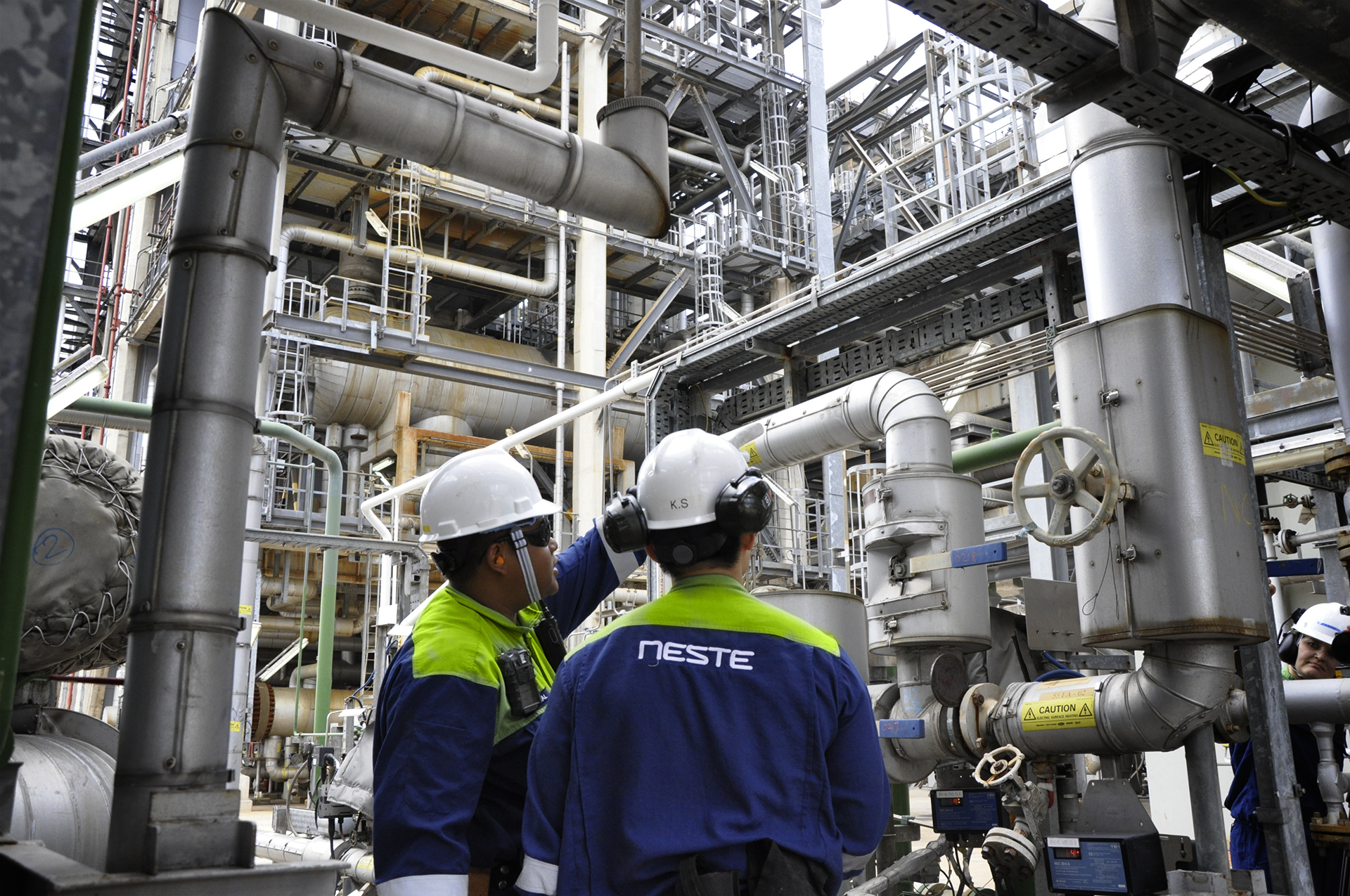
Renewable solutions
7 minute read
Top tips to run major events in a more sustainable way
As the world galvanizes itself to stop climate warming, all sectors are having to find ways to do business and deliver services in a more sustainable way. Major events are no exception. From quick wins to inspiring circularity visions, journalist Emma Harrison explores three key ways how events are becoming more sustainable in the now - and in the future.
From local, smaller-scale events, to big-draw festivals, and from international sporting events to global mega tours - there are few more uplifting experiences than coming together with thousands of others to enjoy the unparalleled atmosphere of a live event. But is it still possible to do so with a clear conscience?“
Given where we are with climate change, we all have an obligation to think about our carbon footprint and explore solutions,”says Susanne Bouma, Head of Partnerships and Programs for Renewable Aviation at Neste, “The good news is there are lots of ways to do this.
“In order to successfully combat climate change and become more sustainable, we all need to join forces – this is what Neste wants to do by working with other climate leaders. We want to show the world that more sustainable events are possible now, it’s not just a dream about the future.”
1. Understanding your climate impact for more sustainable choices
The first step to better sustainability is to make an audit of your environmental footprint – once it is clear what the biggest areas of improvement are, concrete steps can then be taken to start addressing them.
These could include, for example, choosing a venue that is easy to reach via public transport, switching to more sustainable fuels and other energy sources, reviewing the use of disposable items such as plastic cups and cutlery, implementing water refill points, reverting to digital tickets and locally sourced foods.
It is important to look at your value chain as a whole, and where a smarter choice can not only reduce the environmental impact of your event and operations from a wider perspective, but also give the consumers the more sustainable alternatives that they are increasingly looking for.
Bouma says: “We are clearly seeing that there is a desire and demand from sports fans, and consumers of music and other entertainment, for the carbon footprint of these events to be reduced in line with the global drive towards net zero.”
She adds: “I feel very optimistic for major events to become more sustainable. It all starts with the awareness that change is an option – and that is now happening.“
After that it is about identifying the areas in which you wish to make improvements, such as knowing what your carbon footprint is and then finding solutions to reduce it.
At this point it is a case of giving people more sustainable choices – which is what they want. The consumer element is very powerful here as a driver for change.”
2. The drop-in solution to one of events’ biggest sustainability challenges
From personnel to equipment, transportation is one of the biggest challenges when it comes to sustainability on tour.
Bouma says: “Whether it is sports or music events, there is a huge logistical component there; moving teams and artists to meet their fans, and all the equipment – the carbon footprint is big.”
From international flights to cross-country trucking, the good news is that there are solutions available to cut these emissions back with products such as renewable diesel and sustainable aviation fuel (SAF), made from sustainably sourced renewable raw materials including used cooking oil and animal fats from food industry waste.“
Exploring lower-emission alternatives to power aircraft, generators and road vehicles is necessary among other sustainability initiatives,” says Fabricio Bezerra, Renewable Fuels Market Development Manager at Neste US, and continues:
“For example, choosing renewable diesel is the simplest way to significantly reduce a diesel engine's carbon footprint today. The use of Neste MY Renewable Diesel can reduce greenhouse gas emissions by as much as 75-95% over the fuel’s life cycle when compared to fossil diesel. It can be used with existing engines and infrastructure, requiring no extra investment into these.”
Bezerra points to British rock band Coldplay who committed to cutting direct greenhouse gas emissions by 50% on their recent Music Of The Spheres World Tour compared to their previous tour, for example by using SAF for air travel, as well as renewable diesel for their road transport needs and stage power generation.
Bouma adds: “There is some great leadership from forward-thinking bands, artists, sports teams and events organizers, who recognize they need to cut the carbon footprint and are working with climate leaders and solution providers to achieve this. They are showing others what is possible and that is something that is important for us to do at Neste as well.”
Such forward-thinkers also include the Finnish Flow Festival, one of the world’s first carbon neutral festivals, which extensive sustainability program includes using renewable diesel for all its energy needs, and a mindful approach to waste, transport and catering. For sporting events, San Francisco Bay Area Super Bowl 50 Host Committee in the US has been leading on sustainability by example, cutting emissions significantly by switching to renewable diesel to power the Super Bowl City fan village and Super Bowl’s Fan Express buses.
3. Reducing waste at major events
Waste generated at major events is a significant environmental issue – Powerful Thinking’s “The Show Must Go On” report revealed that in the UK alone, camping music festivals are generating 25,800 tons of waste annually.
Re-considering the use of disposables and facilitating recycling are first steps organizers can take to limit the volumes of waste going into landfill. But perhaps even more importantly, driving awareness and behavioral change is key to achieving a more shared responsibility approach to cleaner events – 89% of festival-goers already want to be more responsible with the waste they create.
Campaigns such as Take Your Tent Home or Take it Don't Leave It, or incentive-led initiatives such as a returnable rubbish tax are all great examples of how to tap into this to reduce the problem of waste at major events.
There is indeed a shared responsibility in making events more sustainable – for people who attend the events in terms of their behaviors and choices, and for event organizers in terms of making the sustainable options and choices possible in the first place, and encouraging more responsible behaviors to follow through.
According to Melvin Benn, Managing Director at Festival Republic, the way forward is for event organizers to agree on a Green Code of Conduct: “Creating a Green Code of Conduct is a practical and effective step that the industry can take to show leadership and improve standards.”
Such a code of conduct could include incentivization for festival-goers to travel more sustainably and other initiatives such as composting toilets and better integration of circularity and recycling.
Dreaming big – the sustainable events of the future
There are solutions available for major event organizers to make significant sustainability strides in the here and now, but the future holds exciting opportunities to take this even further.
Bouma lights up thinking about the huge potential there and enthuses: “Dreaming big, looking to the future, there is exciting potential for major events to embrace circularity.
“We produce sustainable aviation fuel with waste and residues – concerts and other major events generate a lot of it! It would be amazing to channel some of these waste streams back into the loop to make fuel.
“Similarly, with power-to-liquid fuels where we capture CO2 from the air. CO2 is produced in big quantities at events by people and event operations. We could turn those emissions into fuels."
Credits: Emma Harrison, a travel and music writer based in England. She writes on a regular basis for The Telegraph, Clash Magazine, Rock Cellar Magazine, Record Collector Magazine and more.




